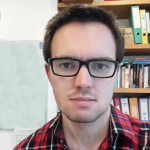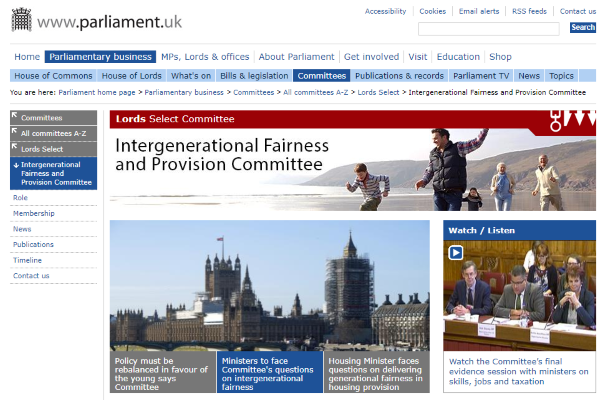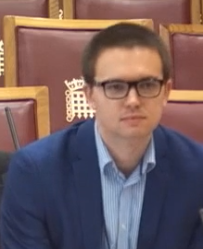
We’ve asked our #DataImpactFellows to share a day in their life.
David Kingman talks us through a memorable day in his career as a researcher: when he got to go and give oral evidence about his research to the House of Lords.
Why was I invited to give evidence?
In May 2018, the House of Lords Intergenerational Fairness and Provision Select Committee launched a new public inquiry investigating the state of intergenerational inequality in the UK.
As their inquiry’s terms of reference aligned so closely with the work that we do at the Intergenerational Foundation (IF) researching inequalities between different generations, I was asked to produce a written submission to their initial Call for Evidence which summarised several of the pieces of research that I’ve done for IF over the past few years.
In both Houses of Parliament, select committee inquiries are usually a three-stage process:
Stage 1: the select committee announces its terms of reference and issues an initial call for written evidence.
Stage 2: over the course of a few weeks, stakeholders with relevant knowledge or expertise give oral evidence to the committee in person at evidence sessions.
Stage 3: members of the committee consider the information they’ve received and publish a report, usually including a series of policy recommendations.
The fact that IF has played such a key role in raising the profile of intergenerational inequality as a political issue meant that once I had submitted IF’s written evidence to the select committee in September 2018, I knew there was a very strong likelihood that I would be invited to go and give oral evidence to them in person.
As I had expected, I duly received an email a few weeks later while I was on holiday in Spain from the clerk of the select committee inviting me to go and give oral evidence at an evidence session in early November.

The big day
The evidence session which I contributed to took place at 12:30pm on Tuesday 6 November in Committee Room A4 within the Palace of Westminster.
I’ve found in the past that the most difficult thing with these type of occasions is that you need to be able to summarise all of the key points from your research – emphasizing what you did, what results you got and what your findings mean in the broader context – in only a few minutes of speaking time.
At the same time, you are also dealing with an audience of politicians who may be neither expert in the fine details of policy implementation nor be used to thinking in the way that researchers and social scientists tend to approach social problems from.
However, in my experience these events have usually tend to go very well, and if you are dealing with policy-makers who are really interested in what you have to say then they can be thoroughly enjoyable, not to mention very useful for establishing your status as an expert in the subject under discussion.
I arrived at the Houses of Parliament at about midday and immediately went through the airport-style security which greets visitors at the public entrance by Cromwell’s Green, and then received directions from the friendly security staff, telling me how to get through the labyrinthine corridors to the committee room where I would be speaking.
If you’ve never been inside it before then the Houses of Parliament is a place where one can easily become lost, as there are so many long wooden corridors containing virtually identical-looking rooms that it wouldn’t be too difficult to end up going to the wrong event by accident.
When I eventually found my way to Committee Room A4, I met my two fellow speakers outside it for the first time and we discussed what kind of questions we thought we might get asked. They were a pair of academics, Professor Elspeth Graham from the University of St Andrews and Professor Christian Hilber from the LSE, who both turned out to be charming company, and we had a very interesting conversation about how the high cost of housing in many parts of the UK is re-enforcing intergenerational inequality.
Taken down in evidence
We were ushered into a large room which was mostly empty, where a long table had been placed at one end around which the members of the select committee and the committee clerks were sat, with a much smaller table placed directly in front of it that had little placards with each of our names on indicating where we should sit. I have thought in the past that the inevitable effect of these seating arrangements is to make you feel as though you are on trial for something, even though when you appear before a select committee as an expert witness I think the general idea of the event is to be more of a discussion than an interrogation.
I wanted to make sure that I communicated my arguments effectively because not only was this an opportunity to potentially generate some policy impact from my research, but also this evidence session was being live streamed and then archived for posterity on Parliamentlive.tv (not to mention that everything I said would be preserved in the official minutes of the inquiry), so I was acutely aware anything that I got badly wrong could haunt me for a long time.
 Fortunately, I had prepared well for my evidence session by going back over the original written submission that I’d sent to the committee a couple of months earlier and re-reading my previous research reports, so I already had a good idea about what points I wanted to make sure I raised.
Fortunately, I had prepared well for my evidence session by going back over the original written submission that I’d sent to the committee a couple of months earlier and re-reading my previous research reports, so I already had a good idea about what points I wanted to make sure I raised.
We were also given a list of potential questions that the committee members were likely to ask beforehand (although they didn’t necessarily have to stick to this list), which I had been over to make sure I knew how I wanted to respond to each one.
I was particularly keen to make sure I explained the findings from my previous research into age segregation to the select committee members, as they had specifically mentioned that they were interested in social segregation between different generations in their inquiry’s terms of reference.
As it happened, the committee’s chairman, Lord True, asked us about this issue directly, so I was able to make sure I got my points across to them.
Overall, I felt that it was a very good discussion, which was something of a relief.
Fortunately, the committee members mainly focused their questions on the areas I felt I knew quite a lot about, so I was able to give confident answers to them. I had been a bit concerned beforehand that someone would throw a really awkward question at me that I wouldn’t know how to provide a pithy response to, but thankfully that never happened.
I think the single biggest takeaway from our discussion was that a major overhaul of the UK’s property taxes would need to be an important component of improving intergenerational fairness, but the influence wielded by property-owning voters would make this very difficult to achieve politically.
The final report
Our evidence session lasted just over an hour, after which we were released to go back to our normal day jobs.
The select committee’s final report, Tackling Intergenerational Unfairness, didn’t appear until the following April, but we were very pleased with it when it did come out because it marks something of a watershed moment in terms of the political recognition which the need to achieve greater intergenerational fairness has received.
It contained a total of 14 policy recommendations, one of which was clearly directly influenced by my research into age segregation between different generations:
“Policies should promote all age communities as drivers of intergenerational fairness. Local authorities should share intergenerational best practice and local and central government should focus on facilitating community activity and ensure long term sources of funding are available.”
If I was giving advice to another researcher who was going to give evidence to a parliamentary select committee, I would encourage them to make sure they have prepared well enough that they can recite the key findings from their research verbatim from memory, as this makes it easier to think on their feet if they get asked any awkward questions, but also that they should try and present themselves confidently even though the way that these events are organised can make them seem a bit intimidating.
About the author
David Kingman is one of the UK Data Service Data Impact Fellows 2019 and is the Senior Researcher at the Intergenerational Foundation.
David is a quantitative senior researcher and data analyst with a wide range of interests including population demography, economics, inequality, housing, pensions, higher education, political representation and wellbeing in his current role as Senior Researcher at the Intergenerational Foundation (IF). The IF is a non-party-political think tank which researches intergenerational fairness.
David is frequently invited to present IF’s work at conferences, seminars and roundtable discussions, and has appeared as an expert witness before select committees in both Houses of Parliament, at All-Party Parliamentary Groups and before the Low Pay Commission on two occasions. In June 2018, he addressed a large audience at the European Parliament as part of the 2018 European Youth Event.
